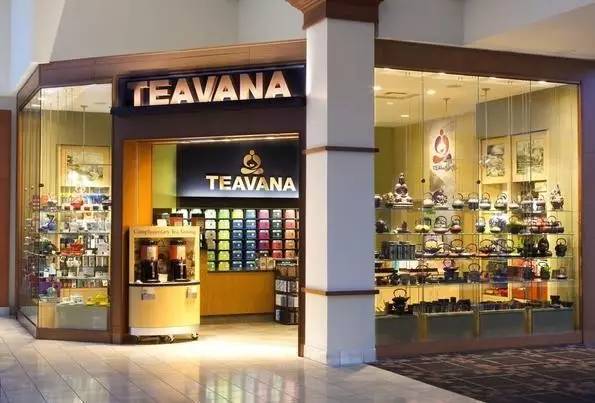Effect of Climate on Coffee Price and Flavor
Pay attention to coffee reviews (Weixin Official Accounts vdailycom ) and find a beautiful cafe to open your own shop
We all believe that climate change affects the world, but few believe that climate change affects us. But the impact of climate change will not be understood until warm winters and intense storms hit.
What does global warming mean for coffee?
A warmer climate will allow bacteria, viruses and other microorganisms to grow and reproduce in a better environment, which will make coffee trees more susceptible to disease. Global warming will also promote the development of "coffee leaf disease" or "coffee rust". These diseases can wipe out coffee trees, spread to entire farms, and even affect areas we thought were immune to. This also means that global coffee production will be greatly reduced.
Soaring temperatures can be associated with more intense rainfall, drought and other harsh weather conditions, which can destroy coffee trees before they bear fruit. A team of researchers based on observations of coffee production changes in Tanzania since the 1960s found that coffee crop yields have fallen from a peak of 500 kilograms per hectare that year to just 300 kilograms today.
If that's what farmers are worried about, then that's what we're worried about. A new study on climate change and coffee production finds that nearly half of Ethiopia's land will no longer be suitable for coffee growing in the near future. The results were published in Nature Plants, an academic journal series. Similar predictions have been published in other reports: Brazil, Indonesia and Colombia, where coffee cultivation will be halved by 2050.
We used to see global warming affecting only a few cold places-polar bears floating on a patch of ice or penguins roaming on bare dirt. But like its name, it is a global phenomenon. Coffee grows in hot climates, so we probably don't think it's a risk. What if global warming? Coffee likes it hot anyway.

Not all places are suitable for us to grow coffee
Just because the coffee belt is concentrated in hot areas doesn't mean we can grow coffee in all hot areas.
More importantly, these special coffee growing areas directly affect the flavor of coffee. Arabica coffee beans are like grapes for red wine and are very susceptible to soil conditions. This is why coffee beans of the same bean species grown in two different countries (or even on two sides of a mountain) can exhibit different flavor characteristics.
One potential "solution" to reducing the amount of land used for coffee cultivation is to move to higher elevations and cooler temperatures. But again, we can't guarantee that coffee will still taste the same when it's moved because the quality of the soil is different. In fact, the height at which farmers can migrate is also limited, because the height of many mountains is relatively low.
And our task of migration is not just a matter of transplanting all coffee trees to a new place to grow. Thousands of Arabica and Robusta coffee farmers have had to completely change their way of life to adapt to the new environment and adapt to new growing methods and cultures. This was a huge feat, and of course, it would cost a lot of money.
What really affects the taste of coffee?
The investor will be solely responsible for the cost of changing the cultivation. Of course, in addition to funding, companies will need to figure out how to adjust farming, but then perhaps people will be better able to use scientific methods such as genetic engineering to try to breed Arabica coffee trees that are more resistant to heat and drought. Similarly, consumers will share some of the costs of building new farms and developing new technologies.
Unless we take some proactive steps, or maybe anyway, we are likely to have coffee shortages. A shortage of coffee beans means pushing prices higher. Brazil experienced a drought in 2014, and coffee prices doubled that year. If drought occurs in more places, what will happen to us?
In fact, drought has long been a thorn in Ethiopia's farmers. The long-term drought and high temperature season have prevented Ethiopia from producing the same amount of coffee beans every year. Arabicans are more sensitive to climate change than you think, and they have a harder time adapting to the new climate. But Ethiopia is the birthplace of coffee, home to a vast variety of beans, and a reserve for the world's coffee supply, which is at risk of weakening and dying out. You may not feel the annual temperature rise, but when the price of a cup of coffee becomes a bit too expensive, you will notice that the taste of coffee suddenly goes bad.
Therefore, for the sake of our beloved coffee, we must also do what we can to protect the environment, cherish every cup of coffee we drink, and avoid unnecessary waste.
Important Notice :
前街咖啡 FrontStreet Coffee has moved to new addredd:
FrontStreet Coffee Address: 315,Donghua East Road,GuangZhou
Tel:020 38364473
- Prev

The business of selling tea in the United States failed, and Starbucks bet 8.8 billion on the Chinese market.
Starbucks spent a lot of money to control 8.8 billion of all the stores in China, and then wholly owned 1500 Starbucks stores in eastern China, making the largest acquisition in history. Although the news is a little sudden, it is reasonable. After the US market has entered a bottleneck period, the Chinese market is of great strategic significance to Starbucks, while taking back such a strong Chinese market.
- Next

2017 A new round of tax cuts in the China-South Korea Free Trade Agreement-- Coffee, Madai Tea and spices
Following Kaiping (official Wechat account vdailycom) found that Beautiful Cafe will open a small shop of its own from January 1, 2017, and a new round of tax cuts will be imposed on Chinese exports to South Korea under the China-ROK free trade agreement. This round of tax reduction includes a total of 18 categories of goods, involving 4915 tax numbers, including 38 tax numbers for coffee, Madai tea and spices. The specific adjustments are as follows:
Related
- Can lightly roasted coffee beans be used to extract espresso? How finely should you grind high-quality coffee beans to make Italian latte?
- What is the difference between the world's top rose summer coffee and Yejia Shefi? What are the flavor characteristics of Yega Shefi coffee and Panama rose summer?
- The ceremony is full! Starbucks starts to cut the ribbon at a complimentary coffee station?!
- A whole Michelin meal?! Lucky launches the new "Small Butter Apple Crispy Latte"
- Three tips for adjusting espresso on rainy days! Quickly find the right water temperature, powder, and grinding ratio for espresso!
- How much hot water does it take to brew hanging ear coffee? How does it taste best? Can hot water from the water dispenser be used to make ear drip coffee?
- What grade does Jamaica Blue Mountain No. 1 coffee belong to and how to drink it better? What is the highest grade of Blue Mountain coffee for coffee aristocrats?
- What are the flavor characteristics of the world-famous coffee Blue Mountain No. 1 Golden Mantelin? What are the characteristics of deep-roasted bitter coffee?
- Can I make coffee a second time in an Italian hand-brewed mocha pot? Why can't coffee be brewed several times like tea leaves?
- Hand-brewed coffee flows with a knife and a tornado. How to brew it? What is the proportion of grinding water and water temperature divided into?

